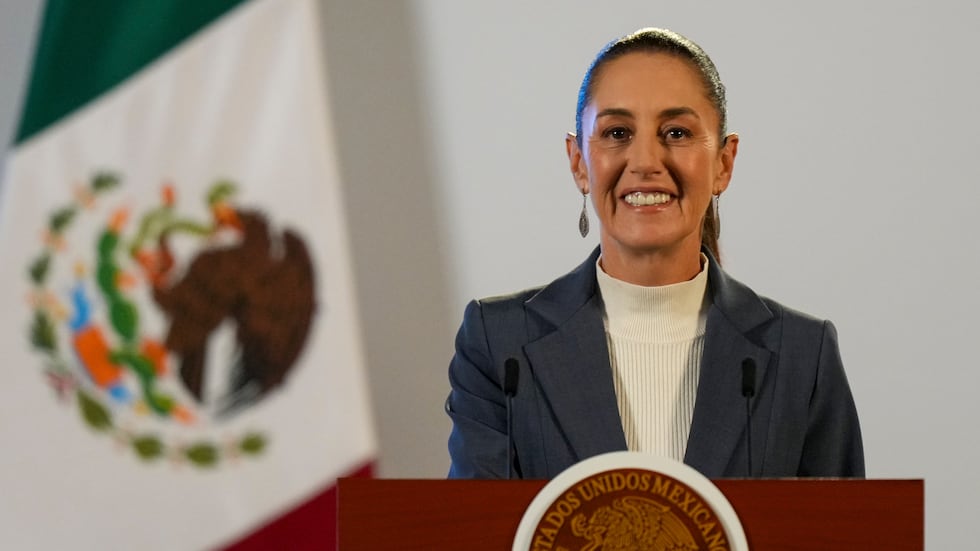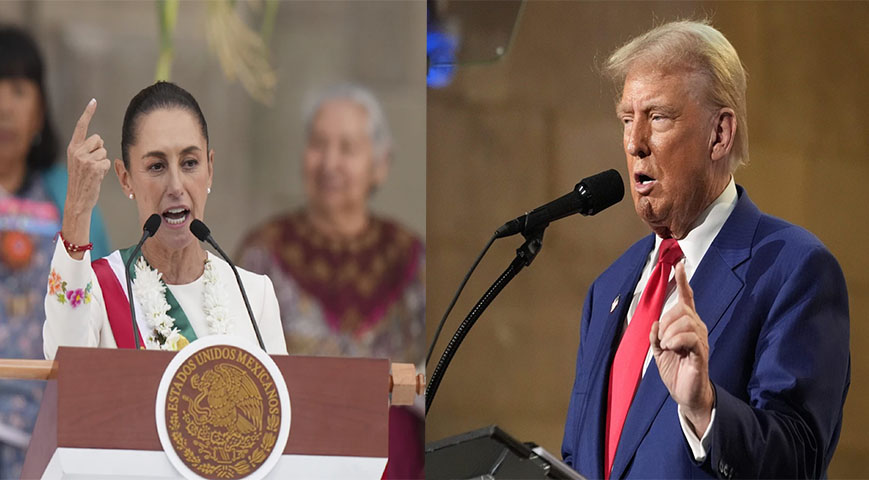Mexican President Claudia Sheinbaum warned of retaliatory measures if U.S. President-elect Donald Trump implements a proposed 25% tariff on Mexican goods.
She emphasized that the tariff could disrupt economic ties, potentially eliminating 400,000 U.S. jobs and inflating prices for American consumers.

Speaking alongside Sheinbaum, Economy Minister Marcelo Ebrard urged regional cooperation over retaliatory trade wars. He criticized Trump’s tariffs as counterproductive, suggesting they could violate the USMCA trade agreement between Mexico, the U.S., and Canada. Ebrard highlighted that the tariffs would heavily impact U.S. automakers like Ford, General Motors, and Stellantis, potentially doubling their tax burdens and increasing vehicle prices by approximately $3,000.
Pickup trucks, primarily manufactured in Mexico, would see significant price hikes, affecting rural U.S. regions that supported Trump. Despite the economic risks, Trump defended the tariffs as a strategy to curb drug trafficking and illegal immigration into the U.S.
Did you read this?
Sheinbaum and Trump discussed these issues during a phone call. Trump claimed on his platform, Truth Social, that Mexico agreed to control migration. However, Sheinbaum clarified on X that Mexico focuses on addressing migration at its root causes rather than closing borders.

Mexico’s peso gained strength following the announcements, as analysts interpreted Trump’s tariff threats as a negotiating tactic. Experts, however, warned of severe repercussions for North American trade.
Barclays analysts noted the tariffs could severely harm profits for U.S. automakers, while Mexico’s AMIA automotive group expressed readiness for any developments. Meanwhile, trade experts and financial analysts anticipate potential renegotiations of the USMCA to avoid economic fallout.
Ebrard reaffirmed Mexico’s commitment to building stronger regional ties, emphasizing that trade among USMCA nations totaled $1.78 trillion in 2023, underscoring the economic importance of cooperation over conflict.









